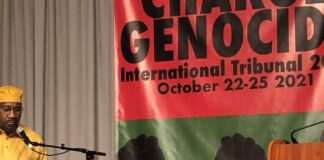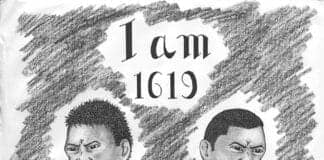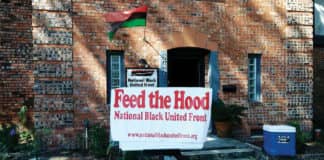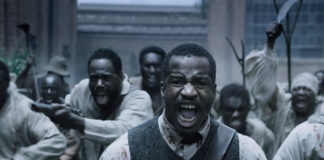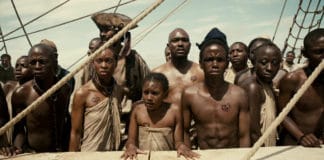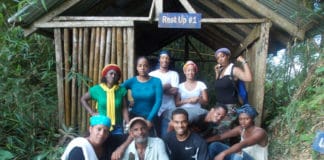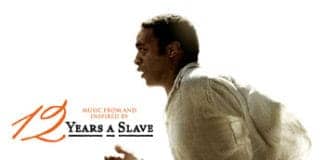Tags Enslaved Africans
Tag: enslaved Africans
Guilty on all counts!
The International Panel of Jurists 2021 finds US guilty of Genocide and Gross Human Rights Violations against Black, Brown and Indigenous Peoples.
Colin Kaepernick, Angela Davis, Pam Africa spotlight Mumia’s fight for freedom
The call to act is urgent to free Mumia Abu Jamal, Russel "Maroon" Shoatz, and all political prisoners, with sustained mass movement of collective energy to accept nothing less than unconditional compassionate release for our fellow brothers and sisters held by the U.S.
‘He thinks he’s Black’
Since I became “woke” about the true level of racism and injustice in this country, it has become easier to recognize the proverbial “house negro.” One of them recently commented to another prisoner, “He thinks he’s Black,” referring to my constant defense of Black people and anti-racist views and loud comments about that racist pig in the White House. Of course, he didn’t say this to my face.
Economics of empire drowns Houston
The North American African’s visceral response to the Lone Star State, Texas, is complex, yet not complicated. If ever a geography was seeped in policies that inhibit the freedoms of Black and, more recently, Brown people, Texas is that state or should we say country? Like California, another country with a GNP reach beyond these shores means that what happens in Houston impacts the nation, whether citizens realize this or not. Hurricanes are not unusual to the region, yet Hurricane Harvey dumped more water on the region than expected and caused much displacement and damage.
Troubled legacy: a review of Nate Parker’s ‘Birth of a Nation’
Perhaps the reason why Nat Turner is almost completely buried within documented and oral histories is connected to the fear his rebellion caused in the Southampton and by extension the Southern antebellum community. Nate Parker’s “The Birth of a Nation” visits this story as Donald Trump draws a white male constituency very much in keeping philosophically with the angry mob who tear the flesh from the iconic Prophet Nat Turner’s body.
‘The Book of Negroes’: Role of British imperialism in the Atlantic...
One often hidden historical fact brought out in the novel and TV series is that more Africans fought alongside the British during the colonial war than with the future rulers of the United States. The British promised emancipation to those slaves who joined their ranks after 1776. But unless you were in The Book of Negroes, you couldn’t escape to Canada.
Meet Dr. Brown, head of the African American Studies Department at...
Dr. Siri Brown is a professor at Merritt College in Oakland and head of its African American Studies Department. She is an academic who understands her role in the classroom, giving young people a knowledge of self and opening fertile minds to the social realities that are oppressing their people as well. She has been an example for present day and future academics for over a decade on how to teach history in a living way.
Mandela’s legacy extends from South Africa, the continent to the world
Nelson Mandela’s passing has drawn responses from throughout the U.S. and the world. To oppressed and working people, Mandela was a symbol and example of self-sacrifice and lifelong commitment to revolutionary change. Although the struggle inside South Africa and throughout the region is by no means complete, the legacy of Mandela through the ANC, SACP, COSATU and other affiliated organizations will live on.
‘12 Years a Slave’
“12 Years a Slave” affected me differently than Quentin Tarantino’s “Django,” which in its caricature style held me spellbound or suspended in a place of imaginative wonder – the Black man was going to win and get the girl too in the end. “Twelve Years” moved slowly and by the time Northup’s ordeal ends we are thankful yet exhausted. I saw the film alone. I think it’s the kind of journey one should invite a companion on.
Fighting spirit: a message from Herman Wallace
Only a handful of prisoners globally have withstood the duration of years of harsh and solitary confinement that Albert and myself have. The state may have stolen my life, but my spirit will continue to struggle along with Albert and the many comrades that have joined us along the way here in the belly of the beast. I want to thank all of you, my devoted supporters, for being with me to the end.
Tracing the African slave trade at the Indian Ocean: Mangapwani Beach
David Livingston, the English explorer, is given a lot of credit for halting or ending the slave trade here. My guide said Livingston’s maps made it easier for the Arabs to penetrate the “interior” and that after the British abolished slavery, the Arabs continued at the Mangapwani Caves located about “20km north of Zanzibar Town along the coast” (Lonely Planet 144).
U.S. prisons packed with political prisoners
This year marks the 33rd anniversary of Black August, the annual commemoration of the liberation struggle of African people inside the United States. The month of celebration and reflection was initiated by political prisoners, many of whom were members of the Black Panther Party and the Republic of New Africa, two of the main revolutionary organizations that emerged during the late 1960s.
Keep AAMLO and all libraries open, Oakland!
A recent evening at the African American Museum and Library in Oakland was special. The line wrapped around the corner of 14th Street at Martin Luther King Jr. Way as people lined up to hear Isabel Wilkerson talk about her book, “The Warmth of Other Suns: The Epic Story of America’s Great Migration.”
Haiti and America’s historic debt
Once the French army had subdued L’Ouverture and his rebel force, Napoleon intended to advance to the North American mainland, basing a new French empire in New Orleans and settling the vast territory west of the Mississippi River. By 1803, a frustrated Napoleon – denied his foothold in the New World – agreed to sell New Orleans and the Louisiana territories to Jefferson.
Haiti’s food crisis: Imposing hunger on the people of Haiti
In Haiti, they have a name for hunger. It's called Clorox hunger - meaning something that eats you from the inside. But it's an imposed hunger, an imposed starvation on the people of Haiti. It has a history. Until the 1980s, Haiti was self sufficient in rice production. But with the lowering of tariffs, Haitians got what we call "Miami" rice. Haiti was flooded with cheap rice imports and Haitian peasants couldn't compete.




